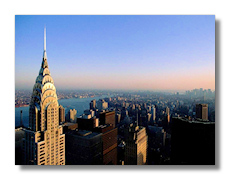
The New York Canon: Classical Music
By Justin Davidson
From Laurie Anderson's magnum opus to the definitive Beethoven marathon.
Classical music is global and ephemeral and often aspires to a state of universality: Tonight's Carnegie Hall recitalist may have just flown in from Germany and will be in Hong Kong next week. Even native New Yorkers hone their acts elsewhere before hoping to return. Which makes an awkward fit for a canon of works linked by their inherent New Yorkiness. I've had to wrestle this list into its frame, omitting many memorable musical experiences because they had no special connection to the city, and tying live events to recordings. The New York Philharmonic's performance of the Brahms Requiem in the days after 9/11 was far too magnificent an event to skip. But I left out Philip Glass's 1976 Einstein on the Beach; although the premiere seared itself into the memory of those who saw it, the recording tells only half a story. New York creates as much music as it imports, and some of it is imbued with local qualities that materialize only later. In the mid-nineties, Steve Reich walked around Manhattan recording sounds that he later wove into City Life. It's more explicitly urban than his other works, yet the sense of overlapping rhythms competing in a crowd – the essential sidewalk experience – is equally evident in Drumming, which he wrote more than 30 years earlier. In music, New York sometimes does something supremely un-New Yorky: It hides.
Read about the complete N.Y. canon at the New York Magazine website:














